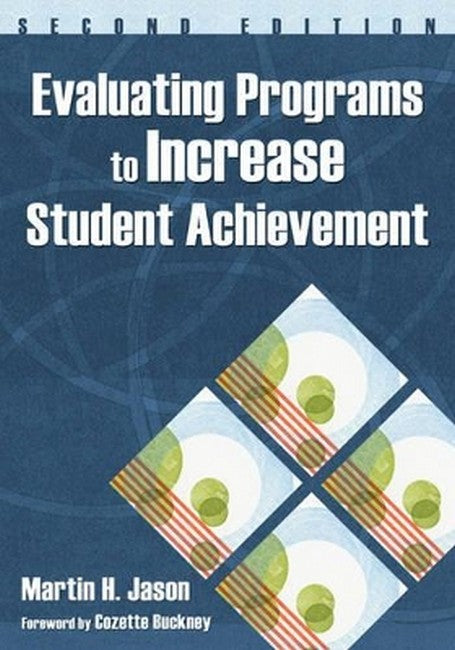Foreword by Cozette Buckney Acknowledgments Preface 1. Perspectives on Program Evaluation Overview How Program Evaluation Contributes to School Improvement Benefits of Site-Based Program Evaluation Goals of Program Evaluation Two Evaluation Methods Assessing Program Processes Linking Evaluation With Program Improvement A Concluding Note Chapter Highlights 2. How Program Evaluation Contributes to a Learning Organization Overview The Spirit of a Learning Organization The School as a Learning Organization Reflective Practice Linking the Parts of the School Organization for Improved Performance Applying a Systems Approach to Increase Student Achievement A Concluding Note Chapter Highlights 3. Using Program Evaluation to Improve the Curriculum - A Developmental Approach Overview Compatible Evaluation Methods The Problem of Confounding Internal Validity Some Further Threats to Internal Validity A Concluding Note Chapter Highlights 4. An Experimental Approach for Evaluating Programs Overview Internal Validity-A Review Building Control Into an Experiment Random Assignment Experimental Designs Deciding Whether to Use One or Two Groups in an Evaluation Study External Validity A Concluding Note Chapter Highlights 5. Program Evaluation Through Collaboration Overview Why Have an Evaluation Team? Team Composition Factors for Principals to Consider in Establishing the Evaluation Team Forming an Evaluation Team The Team in Operation A Concluding Note Chapter Highlights 6. Measuring Program Outcomes Overview Quantitative and Qualitative Data Comprehensive Evaluation Validity and Reliability of Evaluation Data Validity Reliability Perspectives on Authentic Assessment A Concluding Note Chapter Highlights 7. The Evaluation Process: Phases 1, 2, and 3 Overview Phase 1-Describing the Program Phase 2-Providing Direction for the Evaluation Phase 3-Obtaining Information to Answer Evaluation Questions Chapter Highlights 8. The Evaluation Process: Phases 4, 5, and 6 Overview Phase 4-Analyzing Data to Assess a Program's Impact Phase 5-Evaluating the Program's Effectiveness and Offering Recommendations for Its Future Development Phase 6-Writing the Evaluation Report Chapter Highlights 9. Writing the Evaluation Report Overview Format and Content What the Evaluation Report Represents Chapter Highlights 10. Assessing the Evaluation Project Overview Purposes of Metaevaluation Formative Metaevaluation Summative Metaevaluation A Concluding Note Chapter Highlights 11. Revisiting the Principal's Leadership Role in Program Evaluation Overview The Multidimensional Responsibilities of the Principal in Program Evaluation Attitudes of Principals Toward Assessing Programs Beyond the Technical Principals' Self-Assessment A Concluding Note Chapter Highlights Appendix. A Mini-Guide for the Evaluation Team Leader References Index
Request Academic Copy
Please copy the ISBN for submitting review copy form
Description
"The book is a comprehensive guide for school leaders, beginning with the role that administrators can take in promoting, supporting, and facilitating the assessment process, through the goals, process, and actual steps needed to review and evaluate programs." -- From the Foreword by Cozette Buckney "Clear, concise, understandable information presented in a positive, upbeat, and respectful manner. I couldn't wait to share this with other team members!" -- Debbie Johnson, Principal "The author does all the right things: stays on task, stays focused, communicates clearly, gives correct and adequate information that practitioners can understand and implement, and presents the content in a scholarly and yet friendly style that promotes collaborative efforts." -- Marie Kraska, Professor of Educational Foundations, Leadership, and Technology "The author takes a difficult and formidable subject and makes it user-friendly to the K-12 practitioner." -- Judy Brunner, Adjunct Professor

